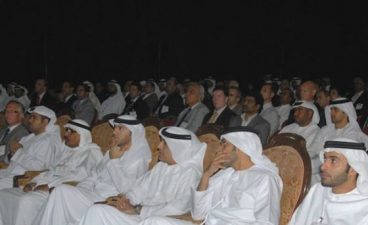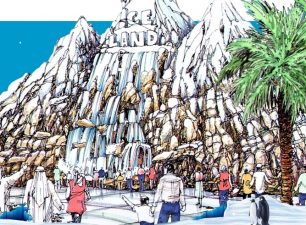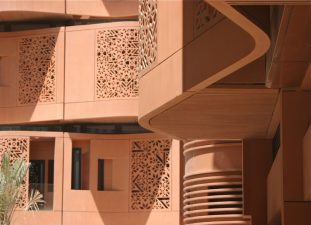 Climate change ruins all the fun. Higher temperatures have cut the skiing season in half.
Climate change ruins all the fun. Higher temperatures have cut the skiing season in half.
Lebanon’s citizens were not dealt an easy life. Their cultural institutions are crumbling, their portion of the Mediterranean is an apocalyptic zone, and every so often their country comes under a barrage of artillery fire because of deadly political disputes. In such an environment, mother nature has historically come last – a big mistake we now know.
While people were looking elsewhere for its answers to the universe, Earth started heating up, glaciers began to wilt, and a cascade of ecological consequences came tumbling down. In Lebanon, that has culminated in the potential loss not only of its national symbol, the ancient Cedar tree, but one of the country’s most celebrated recreational gems: its ski slopes.
Lebanon has six ski resorts, the most popular of which may be Mzaar (aka Mzaar) which is said to have “world class” facilities for tourists, even platform lifts found in fancy restaurants. Previously avid snowboarders and skiers could sink their teeth into pristine powder for up to three months at a stretch. But rising temperatures have changed that, according to Reuters.
Mzaar’s manager Chritian Rizk refuses to acknowledge that climate change will force a shutdown, insisting instead that the resort has managed to adapt to change. He is willing to acquiesce, however, that times have been rough.
“Last season was catastrophic,” he told Reuters on a sunny late autumn morning near the barren slopes of Jebel Sannin, Lebanon’s second highest mountain at 2,695 meters. “This year we are installing new ski-lifts higher up, above 2,000 meters.”
As Reuters points out, many species climb to higher altitudes in order to reach cooler temperatures, including the Cedar tree. With temperatures climbing, the tree will have no place to go.
“I couldn’t give you a specific date when we might see the last cedar on our mountains, but eventually that might happen,” Vahakn Kabakian, an Environment Ministry official preparing Lebanon’s next climate change report to the United Nations, explained to Reuters.
By 2040, Lebanon could lose 40 percent of its snow, which will not only destroy snow-related tourism, but will also have a devastating impact on groundwater aquifers usually replenished with snow melt. As early as 2015, Lebanon may not be able to keep pace with demand, though the capital is already hydrologically bankrupt.
“In Beirut, summer demand for water already exceeds what the network supplies — partly because around 40 percent is lost to leaks — so many people pump from wells. Over-extraction from coastal aquifers has led to seawater intrusion and salinity,” according to Reuters.
So, if you live in Lebanon (or anywhere else in the hot and dry Middle East), now is a good time to fix those leaky pipes and install a good water catchment system on your roof. You’re going to need it.
:: MSNBC
More water news from Lebanon:
Water Problems in Cyprus Worse Than Those of Israel, Syria and Lebanon
Lebanon’s Five Biggest Environmental Headaches Rainless Winter Worsens Middle-East Strife, Garden of Eden Hardest
image via Taras Kalapun



